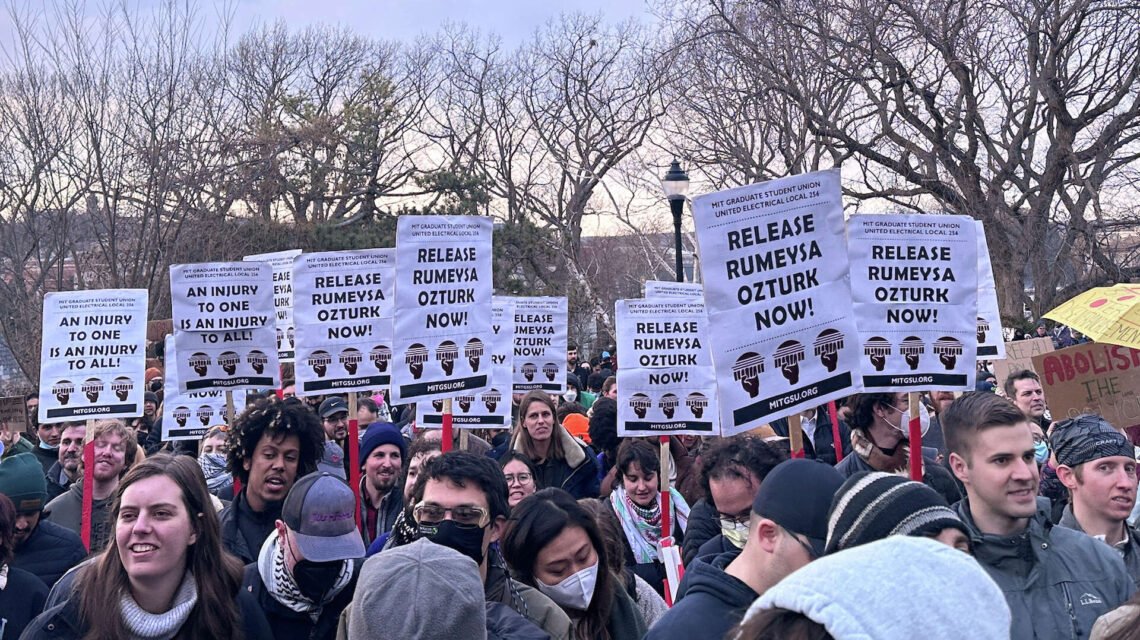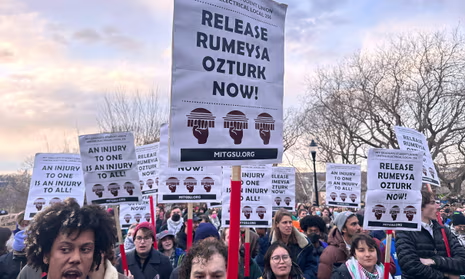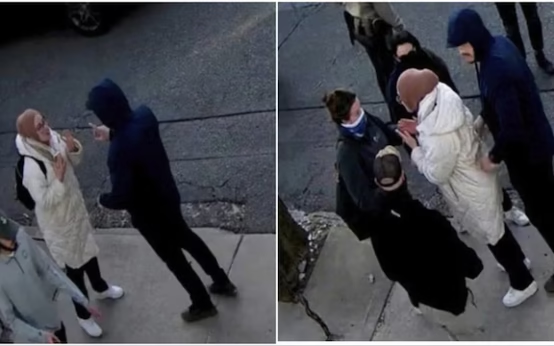The visa revocation case involving Rumeysa Ozturk has created a storm of controversy, particularly in the spheres of immigration law, international education, and political activism. A Turkish citizen and a graduate student at Tufts University, Ozturk saw her F-1 student visa revoked under what many view as questionable circumstances. Was this a straightforward immigration enforcement action, or could it have been politically motivated? This article explores what happened, provides key facts about U.S. visa revocations, and discusses the implications for international students.
Table of Contents
Why Was Rumeysa Ozturk’s Visa Revoked? A Breakdown of the Case
The case against Ozturk stems from allegations about her alleged connections to the Palestinian group Hamas. These claims, though unproven, resulted in her F-1 visa being revoked by U.S. immigration authorities. Specific details about the evidence the Department of Homeland Security (DHS) and Immigration and Customs Enforcement (ICE) used to revoke her visa remain undisclosed. While fighting these charges, Ozturk has found herself at the center of a larger debate about freedom of speech, the U.S. immigration system, and visa enforcement policies.
This is not the first time U.S. authorities have revoked visas over alleged activism or affiliations. However, in Ozturk’s case, critics argue the decision lacks transparency and could serve as a warning to international students with dissenting political opinions.
How and When Was Rumeysa Ozturk’s Visa Revoked?
Ozturk’s visa was reportedly revoked in October, shortly after DHS flagged her for alleged links to Hamas. Typically, when an F-1 visa is revoked, the student is notified through their university, ICE, or U.S. Customs and Border Protection, depending on where they are at the time. Ozturk’s revocation notice allegedly came without substantial prior warning, leaving her to scramble to understand her rights and next steps.
Understanding U.S. Visa Revocation
Visa revocation is not uncommon in U.S. immigration practices. Under the Immigration and Nationality Act (INA), DHS has broad discretion to revoke visas, often citing threats to national security, fraud, or other violations. Reasons for F-1 student visa cancellations can include overstaying the visa period, academic dishonesty, or accusations of unlawful activity.
However, the lack of transparency in Ozturk’s case raises essential questions. Critics argue that invoking vague national security concerns without providing strong evidence could make international students vulnerable to arbitrary or politically motivated visa revocations.
Is There a Connection Between the Hamas Allegations and Her Visa Being Revoked?
The U.S. government has not publicly provided evidence substantiating Ozturk’s alleged ties to Hamas. The lack of clarity has intensified speculation that this visa revocation could be politically motivated. Ozturk’s known support for Palestinian causes, while consistent with free speech rights under the First Amendment, may have made her a target in a politically charged environment.
Cases like Ozturk’s highlight a growing concern over the intersection of immigration, international students’ rights, and political activism. Is voicing support for controversial issues grounds for visa revocation? This question remains unanswered, but it’s a matter of global importance for universities welcoming international students.
What Are the Legal Rights After a Student Visa Is Revoked in the U.S.?
When a student visa is revoked, students have some legal options to consider, including:
- Appeal the Revocation: Filing an appeal allows the visa holder to contest the decision. Evidence proving compliance with visa requirements or rebutting allegations can be presented.
- Request a Reinstatement: Students may petition for reinstatement of their F-1 status if they can show their visa revocation was due to an extraordinary circumstance.
- Consult Immigration Lawyers: Legal experts recommend that students consult an immigration attorney immediately to explore avenues of recourse.
- Apply for a Waiver: Under certain circumstances, students can apply for a waiver of ineligibility, though success rates vary.
The urgency to act quickly cannot be overstated. Once a visa holder loses legal immigration status, they may face deportation, which can severely limit future opportunities to re-enter the United States.
Has Tufts University Responded to Rumeysa Ozturk’s Visa Revoked Status?
Although no formal statement has been released by Tufts University regarding Ozturk’s case, many academic institutions prioritize advocacy for their international students. Universities often act as intermediaries with DHS to provide clarification and ensure due process. Whether Tufts has initiated such actions for Ozturk remains unclear, but her predicament highlights the critical role institutions play in protecting their students under U.S. visa policies.
Public Reaction to Rumeysa Ozturk’s Case
Ozturk’s situation has sparked a significant public outcry, particularly among international students, immigration organizations, and supporters of free speech. Many view her case as part of a broader trend of politically motivated visa revocations targeting specific groups.
Social media platforms have amplified calls for transparency surrounding her case, with hashtags like #JusticeForRumeysa is gaining momentum. Advocacy groups argue that such cases risk alienating international scholars and tarnishing the reputation of the U.S. as a welcoming destination for education.
Comparing Similar Cases Where Visas Were Revoked for Activism
Ozturk’s case is not isolated; other international students have faced similar situations. For example:
- Israeli Boycott Case: A Palestinian student denied entry to the U.S. in 2019 despite holding a valid visa, allegedly for his political activism.
- Middle Eastern Students: Reports over the years have detailed increased visa scrutiny for students from the Middle East amid allegations tied to national security.
These cases underline the importance of consistent, fair, and transparent visa enforcement policies to maintain trust within the international academic community.
The Impact of Rumeysa Ozturk’s Visa Revocation on Her Education
The immediate impact of visa revocation on students is severe. Ozturk’s education at Tufts University remains in limbo, and her academic career has taken a significant hit. For students in similar situations, research interruptions, financial loss, and reputational damage are just the beginning. Many face difficulties transferring to other institutions or continuing their professional development in the U.S.
What Happens After a Visa Is Revoked? Ozturk’s Legal Options
For Ozturk, the next steps may include legal challenges or seeking intervention from advocacy groups, such as those focused on international student rights. Whether Ozturk will have her visa reinstated depends largely on the strength of her legal representation and the clarity of evidence presented.
Key questions remain unanswered, but her case underscores the urgency of providing international students with avenues to dispute visa cancellations while staying informed about their rights.
What Does This Mean for International Students?
The case of Rumeysa Ozturk highlights critical concerns about the safeguards protecting international students. To avoid facing similar challenges, students should:
- Stay informed about U.S. visa policies.
- Seek advice from immigration lawyers when dealing with potential issues.
- Ensure clear communication with university administrators about their visa status.


 Rumeysa Ozturk Pro-Palestinian Activism in the U.S.
Rumeysa Ozturk Pro-Palestinian Activism in the U.S.  Why Was Rumeysa Ozturk Detained? The Full Story Behind Her Case
Why Was Rumeysa Ozturk Detained? The Full Story Behind Her Case